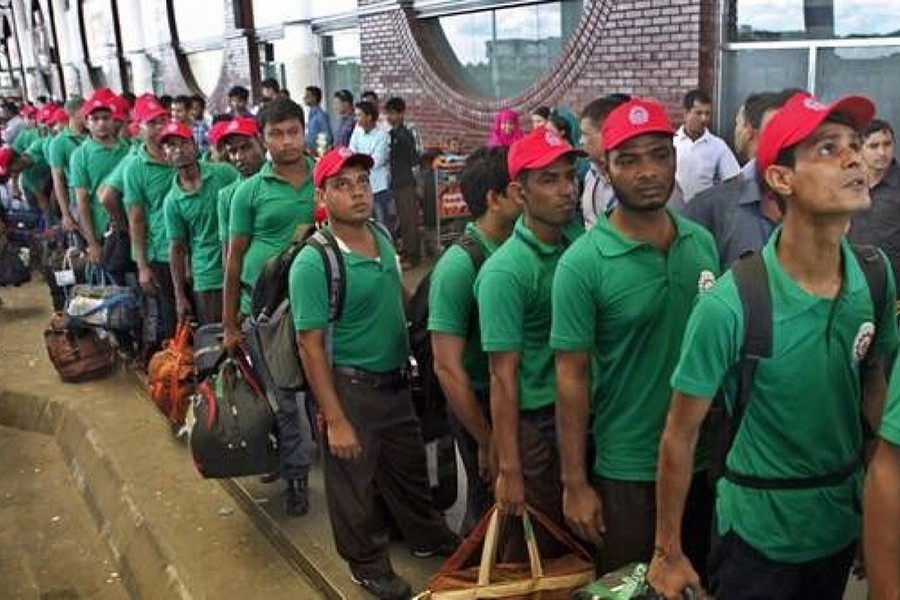The two-day's visit to Bangladesh by the home minister of the newly elected Malaysian government is learnt to have ended on a positive note. As expected from the Bangladesh side, the main focus of the meeting between the Bangladesh's expatriates' welfare and overseas employment minister and the Malaysian home mister was on relaxing the existing migration law of Malaysia and making the manpower recruitment process easier, faster and cheaper. To this end, the joint working group comprising representatives of the two nations, it was informed, may sit sometime this month.
As reported in the media, the meeting between the two ministers also considered the possibility, if necessary, of reviewing the Memorandum of Understanding (MoU) signed in December, 2021 between the two countries when the immediate-past Malaysian government was in office. Notably, the stakeholders from Bangladesh side at that time expected that the Malaysian recruiting agencies would bear the recruitment cost of Bangladeshi workers. Additionally, it was also expected that they would pay the plane fare, prepare job contract, bear the cost of repatriation and housing. Also, the Malaysian employers of Bangladeshi workers would pay the immigration and visa fees, costs of health check-up, insurance, etc. However, the MoU in question drew a lot of flak from the recruiting houses and other quarters concerned in Bangladesh. The reason is, as the local stakeholders noted, the MoU in question allowed only 25 Bangladeshi recruiting agencies to perform the job of sending workers to Malaysia. It would be worthwhile to mention here that at present there are over 1,500 registered recruiting agencies in Bangladesh, though the government permits only 100 of them to send workers abroad.
Regrettably,however, allegations abound against the local recruiting agencies. One of those is that they charge between Tk 250,000 and Tk 300,000 as migration expenses from Bangladeshi workers seeking jobs in Malaysia, which is rather high considering that the government-fixed rate for the job is Tk79,000 for each person recruited. Against this backdrop, the ministers from the two countries have left these issues, as included in the MoU, to the proposed working group meet for resolution through discussion. Reassuringly, the visiting Malaysian minister, as he spoke to the press following the meeting, appeared quite responsive to the concerns as expressed by the Bangladesh side. Especially, his statement that his government was working to speed up the process of hiring workers from abroad and reducing cost of migration is no doubt of great significance.
The Malaysian minister further informs that his newly elected government is sensitive towards meeting the foreign workers' needs, reducing various costs and protecting their integrity. Most importantly, the Malaysian minister's disclosure that his government has meanwhile legalised a good number of foreign workers as part of its programme to regularise illegal foreign workers is appreciable. Starting at the end of the last month, it is no doubt music to our ears that 55 per cent of those legalised so far are migrant workers from Bangladesh. The willingness that the Malaysian side has shown to change the existing rules if those cannot meet those requirements is uplifting. Last but not least, such a visit to Bangladesh by a Malaysian cabinet minister whose government has taken office only two months back, hopefully, heralds a new era in every sphere of bilateral cooperation between the two nations in the future.


